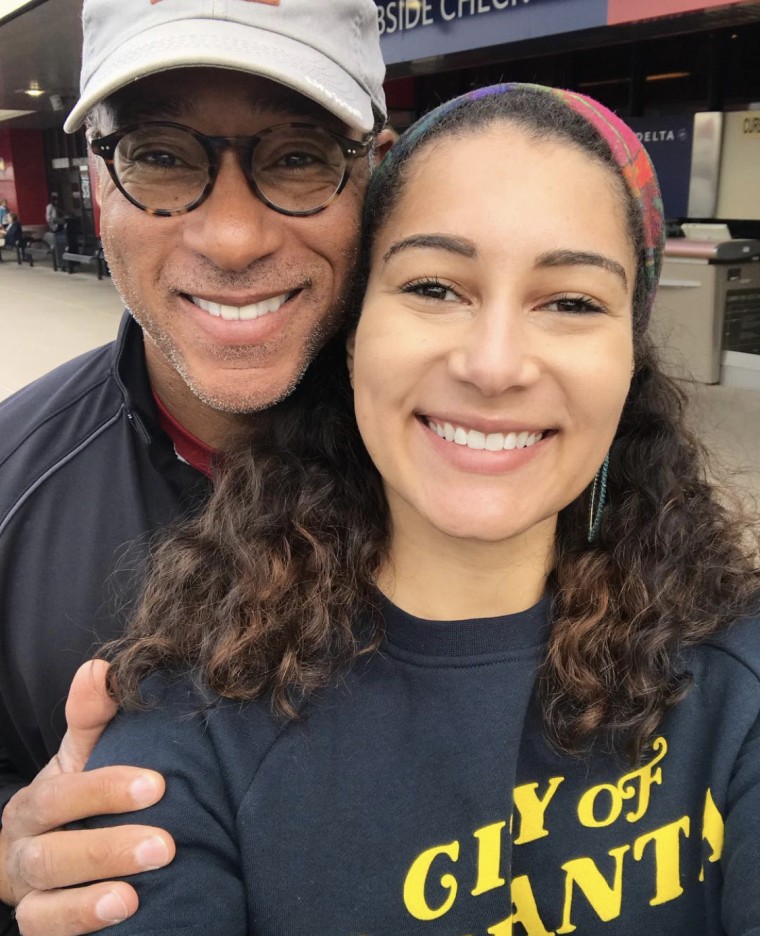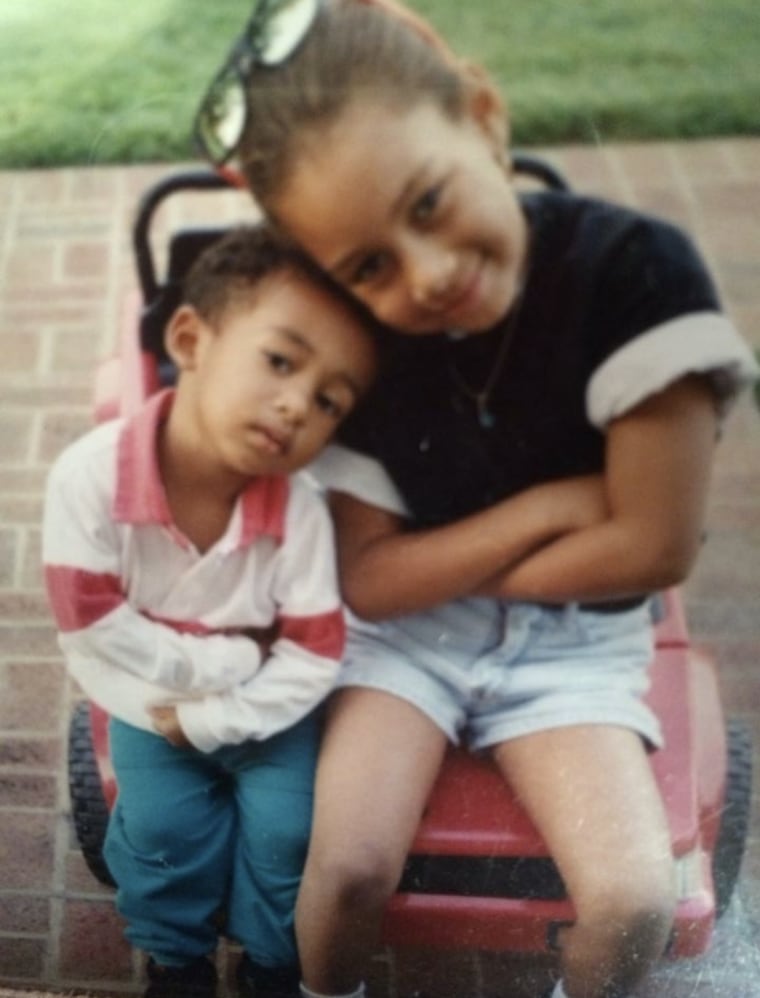This week TODAY reported on the "Sisters of the Movement," a group of Black women whose siblings were killed by police or in police custody. They're fighting for police reforms in hopes that other families won't have to experience what they went through. TODAY's Morgan Radford, who spoke to the women, reflects on how the story touched her personally.
As a reporter, there are some stories that stay with you forever.
This was one of them.
We met the “Sisters of the Movement” in Dallas, just days after the funeral of George Floyd. Some of them attended Floyd’s service; others said they couldn’t bring themselves to watch the video of his death, still tormented by the images of their own siblings losing breath in their final moments. But all of the women were connected in this one, unfathomable way: each had lost a sibling who died by police or in police custody. All of them had been unarmed.
Our cameras rolled as they met each other in person for the first time. They cried tears of joy, tears of pain and tears of recognition. In their grief, they were indeed sisters — forming a cocoon of sisterhood in the absence of the siblings they lost. For almost two hours, we talked about their experiences since the moments that changed each of their lives, their reaction to the protests erupting across the country, why they were fighting for police reform and what that reform meant for them.
I’ll never forget what Ashley Carr, the sister of Atatiana Jefferson, who was fatally shot inside her Texas home, said: “At any time, my life can be taken from me. And I'm doing everything I'm told to do: I go to school. I graduate. I (am) a productive citizen. I'm paying my taxes. I'm trying to do things to better ourselves and better our communities. And we still are looked at as easy prey, easy targets.”
Her fear is one that has crippled Black families and families of color for centuries.
Mine was no exception.

I am the product of a loving, doting, committed Black father. I grew up protecting an endlessly optimistic baby brother with big brown eyes. My parents raised us to love the world, but they also warned us that the world might not always love us back in the same way. That was OK, they assured us, because love was our superpower. We were tasked to lead with love, to build up our communities and the people around us and to make more space for the inclusion of every race, gender, profession, creed and sexual orientation — so that everyone could feel seen and supported.
And yet, listening to these seven women who had lost the people most important to them, I was reminded of why my parents gave us those lessons. The world doesn’t always see the big brown eyes, the warm embraces, the dreams and positivity that we do. Sometimes, it sees images that inspire fear instead of hope. And sometimes, that lack of recognition can be life-changing. Or, it can end a life.
That is why, when I heard the stories of those seven women, I cried, too.

I am often asked how it feels to cover difficult stories as a journalist. As reporters, we can always try to explain, but the truth is that when our cameras are rolling, viewers almost never see how it feels for us behind the scenes. Our friends and viewers don’t see the tears that come after an arrest of an industry colleague on live TV, the fear after tear gas goes off in a crowd, the hard conversations we have with our parents after an assignment when they ask if we’re OK.
But in rare moments — extremely rare moments — they do.
This was one of them. When people watched this story, what they saw was what it felt like to sit in a room filled with pain, to stare grief directly in the eye. They saw what it was like to witness courage, raw and unyielding. They saw tears of humility — a journalist humbled by the bravery of a group of women who was willing to let the world see their most raw vulnerabilities, and the daily courage it takes to live with that pain.
But they also saw tears of recognition. Their vulnerabilities are all of our vulnerabilities; their pain belongs to all of us. And that is what strikes me most about the moment we find ourselves in now as a country: there has been a reckoning of our identity, an awakening of shared values, a fervor to define — and redefine — our collective purpose. No matter where you find yourselves or what beliefs you hold, we are responsible for emerging from this difficult moment in our country’s history ... together.